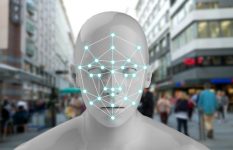Facial Recognition Glasses: Next on the NSW Police Wish List?

In recent years, police in New South Wales have been the beneficiaries of hundreds of laws which increase state control at the expense of legal safeguards and protections – from laws which broaden police powers of arrest, to those which allow officers to control peoples’ movements and associations, to laws which permit them to detain suspects for longer periods of time without charge, and those which allow police to ‘shoot first and ask questions later’ and give them immunity from both civil and criminal prosecution during ‘special intelligence operations’, even if they commit heinous assaults against innocent people in the process.
And in a first for the Western world, metadata retention laws have come into effect requiring internet service providers to store the personal data of customers for at least two years and release it to a whole host of law enforcement agencies upon request without them having to obtain a warrant. Those laws have already been misused in a range of ways.
The federal government has even passed legislation to enable the creation of a national biometric database using driver licence photos supplied by states and territories, which could be used for any number of intrusive purposes.
Such laws are almost invariably passed under the guise of protecting against terrorism or organised crime, but many believe they do little more than curtail important civil liberties such as privacy, freedom of movement and association, the right against detention without proper cause and the ability to seek accountability for personal abuses.
Surveillance in China
But China has taken state intrusion to another level.
Police in that country have been issued with hi-tech ‘smart glasses’ which use facial recognition technology to identify people whose appearances correspond with images on government databases, including those of regular citizens.
Facial recognition glasses
The dark black sunglasses have a small camera attached to one lens. The camera is connected to a hand-held device which has the ability to process images, compare them to those on databases and supply information in the event of a match.
That information can include the person’s name, ethnicity, gender, address, criminal history, whether they are currently suspected of a crime and even more pervasive data such as the individual’s recent internet browsing history.
The glasses are currently being worn by officers at one busy train station, but there are plans to roll them out across the public transport network.
According to The People’s Daily, China’s official state newspaper, the glasses have already helped capture seven fugitives and detect 26 people attempting to travel using the identity cards of others.
CCTV network with biometric capability
China is a world leader in surveillance and biometric technology, with a network of 170 million CCTV cameras, many of which have facial recognition capability.
The Chinese government plans to install a further 400 million cameras by 2020.
The state mandates the collection of biometric data of citizens, which can then be used to monitor and control them.
People in China are required to possess identity documents when travelling on trains, and facial recognition devices have been used to prevent people with debt from using high-speed trains and limiting the movement of those who have had their identity documents confiscated, including political dissidents and members of religious minorities.
BBC reporter John Sudworth recently had his photo flagged to see how long it would take authorities to find him using their network of cameras. It took just seven minutes.
Monitoring ‘undesirables’
William Nee, a China researcher with Amnesty International, believes the technology will be used to monitor and target political dissidents, ethnic minorities and even journalists.
“There’s already some evidence that human rights defenders and ethnic minorities might be singled out for profiling using facial recognition technology,” he added.
China has been criticised for the use of such biometric technology to control and persecute the country’s Muslim population.
A system deployed in Xinjiang — a province with a population of some 10 million ‘Uyghur’ Muslims, is designed to notify authorities when ‘target’ individuals go beyond their home or place of work
Uyghurs have also been targets of roving VPN crackdowns and smartphone confiscation. Back in 2010, the government shut the region’s internet connect for a 10-month period following violence between Uighurs and Han Chinese.
“Chinese authorities seem to think they can achieve ‘social stability’ by placing people under a microscope, but these abusive programs are more likely to deepen hostility towards the government,” remarked Sophie Richardson, China director of Human Rights Watch.
“Beijing should immediately stop these programs, and destroy all data gathered without full, informed consent”, she stated.
Australia government
As stated, the federal government has passed legislation requiring the states and territories to hand over driver licence photos in order to facilitate the creation of a citizen database.
The move is explicitly aimed at enabling real-time biometric face-matching at a range of locations, just like what is occurring in China.
Stephen Blanks, the president of the NSW Council for Civil Liberties, believes the scheme represents a dangerous and unjustifiable intrusion into the privacy of individuals, one which can be used to perpetuate unjust acts.
“Totalitarian governments who want to abuse their position often find databases of this kind very useful to pursue unacceptable policies,” he explained.
But like many other laws which bolster state power at the expense of personal freedoms, the legislation was passed with bipartisan support, minimal consultation and barely a whimper from the voting public.
It seems the catchcry ‘Without Privacy There is No Freedom’ is falling on deaf ears – that a fearful public is willing to give away hard-fought freedoms and safeguards for the government’s tenuous promise of protection against an exaggerated threat which the surrender may have little effect upon






